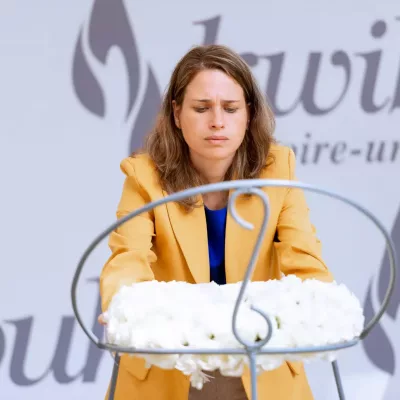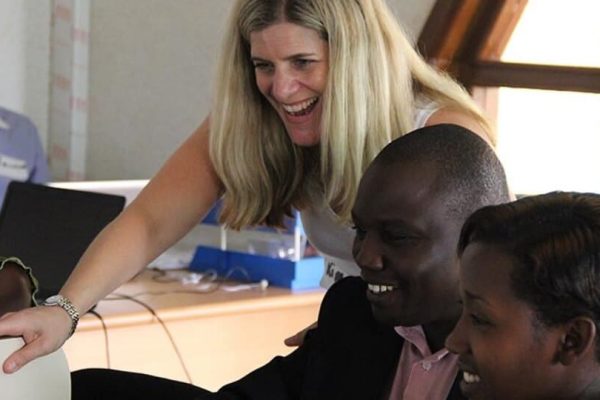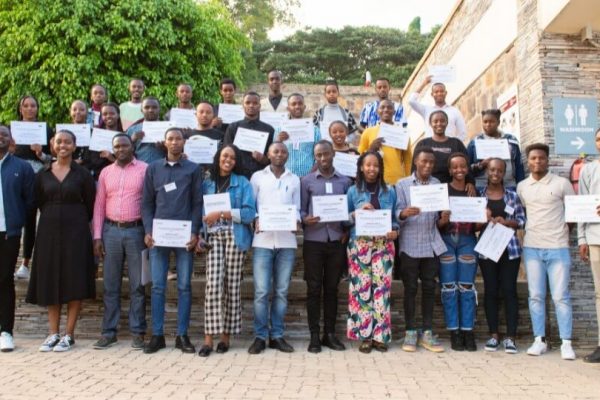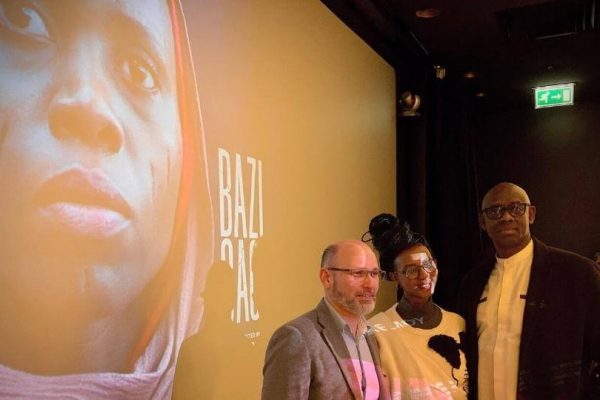Remarks by Ambassador Peter Fahrenholtz at the Kigali Genocide Memorial
When the ambassador of Israel to Rwanda who is stationed in Ethiopia asked me if the German embassy would like to assist in preparing today’s event I was again very glad to agree.
I am glad that the UN in Rwanda joined in this event today. I would like to thank the Genocide Memorial for hosting and helping us and making this venue available.
To commemorate the “International Day of Commemoration in Memory of the Victims of the Holocaust” in Rwanda is – obviously – of a special and deep significance. I would like to thank the Parliament and Government of Rwanda for their presence and participation today.
This Day commemorates the liberation of Auschwitz on the 27th of January 1945 by the Soviet Russian army and it commemorates the victims of the Holocaust. Ausschwitz was the largest concentration camp where millions of men, women and children of many nationalities were murdered, mostly by far Jewish people. Also, unwanted and discriminated minorities were murdered.
Germany knows the magnitude of its guilt and responsibility for the Holocaust – this barbaric crime against humanity and strives to come to grips with this legacy. The genocide of 6 million Jews, carried out in the name of Germany and by Germans, has brought indescribable suffering to the Jewish people, Europe and the entire world. If there is anything Germany can share from its own experience, it is this: facing up to the grim truth of what took place is the only path to begin reconciliation. A past that is not examined fully and honestly will remain a burden for the future.
Germany accepts its enduring responsibility for the Holocaust and together we will be able to build a better future. Respect for our common humanity is rooted in our responsibility for the past. Every attempt to trivialize these atrocities must be stopped immediately. Anti-Semitism, racism, persecution of minorities and xenophobia must never be allowed to gain a foothold in Germany, Europe or anywhere else in the world. Otherwise all of us – German society, the European and global community would be placed in severe jeopardy.
We need to hold on to a culture of remembrance that will also endure when the survivors of the Holocaust are no longer among us. The basis for remembrance and reconciliation lies in shared values, the values of freedom, democracy and respect for human dignity. The most precious asset that we have is the inalienable and indivisible dignity of each individual human being, irrespective of their gender, descent, language, beliefs, ethnic origin or homeland: The Human Rights of every person. We must never forget that the process that leads to genocide always begins with the violation of the dignity and the rights of individual human beings. All of us and our governments are called upon to do what whatever we can to protect the Human Rights of every person in our societies.
The German Government recognizes Germany’s historical responsibility for the Holocaust, which forms the basis of a special relationship with the State of Israel and Jews all over the world. We must keep the memory of the Holocaust alive and present as we shape the future. Germany will continue to categorically denounce any attempt to deny or qualify the Holocaust or any other Genocide and will continue to resolutely oppose all efforts to call into question Israel’s right to exist. The citizens of Israel have a right to live within secure borders, free of terror and fear.
We are very much aware that our bilateral relations with Israel are unique. Our relationship is marked by the Holocaust as well as by the experience of shaping our present and future together. Today we look back on German-Israeli relations that were established more than 50 years ago.
After 1945 we said “Never again” but it did happen again, genocide was committed here, in Rwanda in 1994, and also in other countries. We must persevere, we must correct our mistakes, we must remain committed that there will be never again another genocide and do whatever is necessary to prevent genocide.







